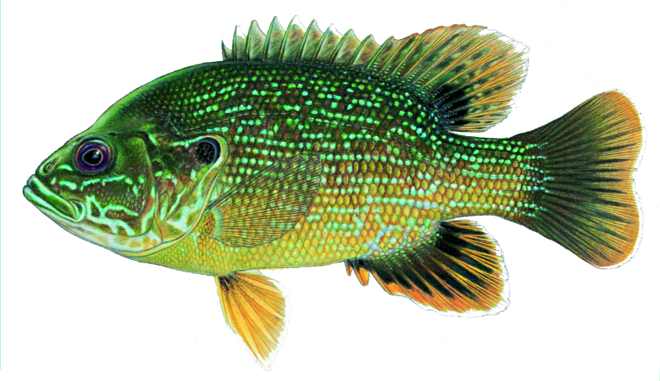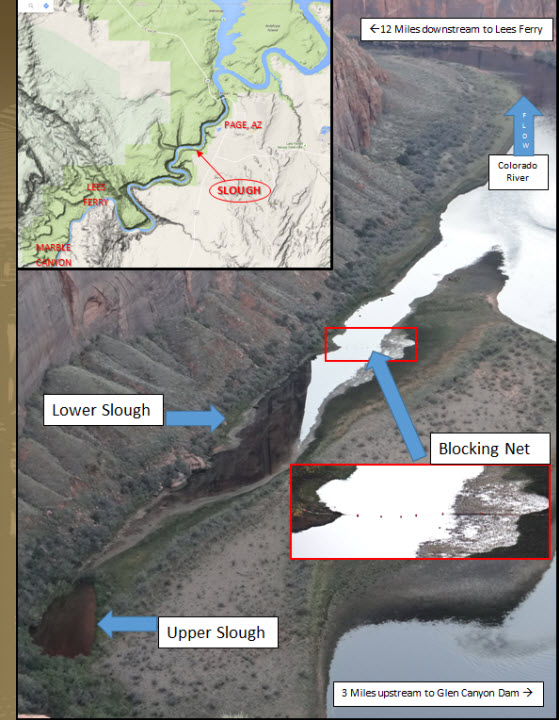Difference between revisions of "Green Sunfish Page"
Cellsworth (Talk | contribs) |
Cellsworth (Talk | contribs) |
||
| Line 73: | Line 73: | ||
*[http://www.usbr.gov/lc/phoenix/biology/azfish/sunfish.html Information on the green sunfish] | *[http://www.usbr.gov/lc/phoenix/biology/azfish/sunfish.html Information on the green sunfish] | ||
| − | |||
|- | |- | ||
| Line 88: | Line 87: | ||
'''2015''' | '''2015''' | ||
| − | |||
*[http://www.usbr.gov/uc/rm/amp/twg/mtgs/15oct20/pdfs/Attach_05b.pdf Green Sunfish Rapid Response Non-native Fish Control in Glen Canyon National Recreation Area] | *[http://www.usbr.gov/uc/rm/amp/twg/mtgs/15oct20/pdfs/Attach_05b.pdf Green Sunfish Rapid Response Non-native Fish Control in Glen Canyon National Recreation Area] | ||
| + | *[[Media:2015 Recommendations Report Final HFE Tech Team Report 10-15-15.pdf| Final Recommendation to Not Implement a Fall 2015 High Flow Experiment at Glen Canyon Dam]] | ||
| + | *[http://www.usbr.gov/uc/rm/amp/twg/mtgs/15oct20/pdfs/Attach_05a.pdf Invasive species threats: Green sunfish] | ||
*[https://drive.google.com/file/d/0BwY-Z2c3NTUGQURtV2s3eWJqRHM/view Updates on 2014 HFE, 2015 Paria sediment inputs, and 2015 sediment mass balance] | *[https://drive.google.com/file/d/0BwY-Z2c3NTUGQURtV2s3eWJqRHM/view Updates on 2014 HFE, 2015 Paria sediment inputs, and 2015 sediment mass balance] | ||
Revision as of 17:09, 16 August 2016
|
Green Sunfish (Lepomis cyanellus)Description: Native to the Great Lakes, Hudson Bay and the Mississippi River basin. Introduced into Arizona in 1926. Large mouth with blue-green striations on the cheeks. Opercle flap is black with reddish or orange border. Bodies olive-green in color, dark vertical bars are faintly seen on sides. Pectoral fin short and rounded. Caudal fin and lower fin margins are white or yellowish with dusky spots at rear of dorsal and anal fins. Length: 3 to 12 inches. Weight: 3 ounces to 1 pound 8 ounces. May live to nine years. Location and Habitat: Found in most warm water lakes and streams in Arizona and even in a few trout lakes in the White Mountains and Mogollon Rim. Prefer lakes with rocky substrate and piles of rubble, but can be found around brushy banks and cliffs. Reproduction: Males build nests in shallow pools over gravel, sand or bedrock. The nests are usually within a couple feet of each other. The male guards the nest and hatched fry. Males constantly show defensive displays and fight with other males who come too close. Food: Green sunfish will eat anything they can catch and swallow. Aquatic and terrestrial insects and invertebrates are the most common food items. Small crayfish, fish and frogs are all in danger when green sunfish are present. Angling: Because of their highly predaceous and pugnacious nature they are one of the easiest fish to catch. They are always hungry and readily bite on small worms and insects. They readily take small jigs, spinners and spoons, as well as nymphs and small streamers. Green sunfish are great for teaching kids how to fish. |
| --- | Fish Species of the Colorado River in Lower Glen Canyon and Grand Canyon |
--- |
|---|

